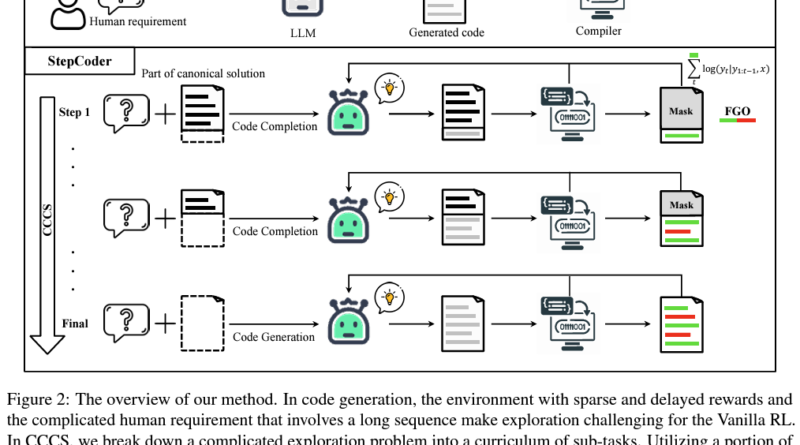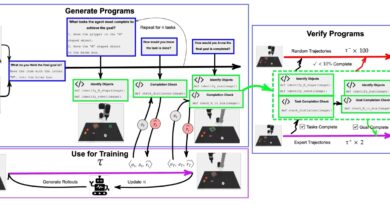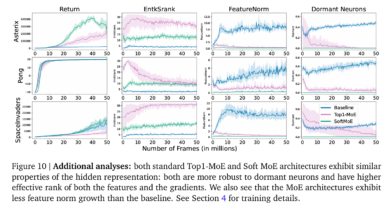StepCoder: A Revolutionary Reinforcement Learning Framework for Code Generation
Introduction
In the realm of artificial intelligence, code generation has always been a challenging task. While large language models (LLMs) have made significant progress in automating code generation from natural language instructions, they often fall short of capturing the nuanced requirements of human programmers. However, a groundbreaking new research paper introduces StepCoder, a novel reinforcement learning (RL) framework, which aims to revolutionize code generation by aligning it more closely with human intent and significantly improving its efficiency.
The Challenges of Code Generation
Traditional methods of code generation face multiple challenges when it comes to complex, multi-faceted coding tasks. While these methods may produce syntactically correct code, they often fail to capture the intended functionality fully. This discrepancy between the generated code and the programmer’s intent can lead to errors and inefficient code structures. StepCoder addresses these challenges head-on by leveraging reinforcement learning techniques and innovative components that optimize the code generation process.
🔥Explore 3500+ AI Tools and 2000+ GPTs at AI Toolhouse
The Components of StepCoder
StepCoder comprises two main components: the Curriculum of Code Completion Subtasks (CCCS) and Fine-Grained Optimization (FGO). Together, these mechanisms enhance exploration in the code generation process and optimize the learning process to generate more accurate and functionally correct code.
Curriculum of Code Completion Subtasks (CCCS)
CCCS addresses the challenge of exploration in code generation by breaking down the task of generating long code snippets into manageable subtasks. By gradually increasing the complexity of the coding requirements, StepCoder allows the model to learn step-by-step, starting from completing simpler code chunks until it can synthesize entire programs. This systematic escalation enables the model to effectively explore the vast space of potential code solutions and generate functional code from abstract requirements.
Fine-Grained Optimization (FGO)
The FGO component of StepCoder focuses on optimizing the code generation process. It utilizes a dynamic masking technique to concentrate the model’s learning on executed code segments, disregarding irrelevant portions. By fine-tuning the learning process based on the functional correctness of the code, as determined by the outcomes of unit tests, StepCoder ensures that the generated code is both syntactically correct and aligned with the programmer’s intentions. This targeted optimization further enhances the quality of the generated code.
Evaluating the Efficacy of StepCoder
Extensive testing and benchmarking have demonstrated the superior performance of StepCoder in generating code that meets complex requirements. Compared to existing methods, StepCoder navigates the output space more efficiently and produces functionally accurate code. The framework sets a new standard in automated code generation, significantly bridging the gap between human programming intent and machine-generated code.
The Implications of StepCoder
StepCoder’s innovative approach to code generation has far-reaching implications for the field of artificial intelligence and software development. By making code generation more aligned with human intent, StepCoder offers the potential for more intuitive and efficient tools for programmers. The incremental learning nature of StepCoder closely mirrors human skill acquisition, paving the way for advancements in software development and artificial intelligence.
Conclusion
StepCoder is a groundbreaking reinforcement learning framework that revolutionizes code generation. By addressing the challenges of exploration and optimization, StepCoder generates code that better aligns with human programming intent. The framework’s success in generating accurate and efficient code sets a new standard in automated code generation and offers promising possibilities for more intuitive and effective tools for programmers. As we continue to explore the potential of reinforcement learning in code generation, StepCoder represents a significant milestone in the advancement of artificial intelligence and software development.
Check out the Paper. All credit for this research goes to the researchers of this project. Also, don’t forget to follow us on LinkedIn. Do join our active AI community on Discord.
If you like our work, you will love our Newsletter 📰




